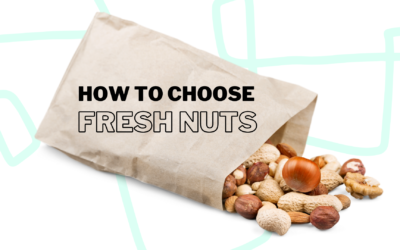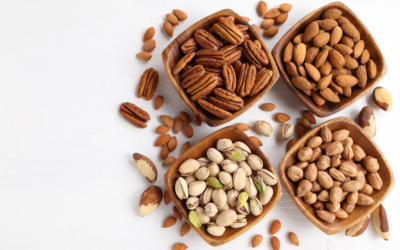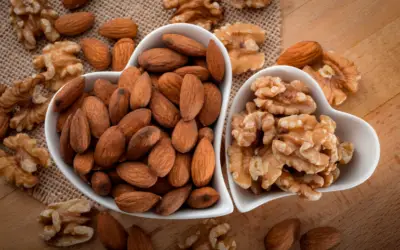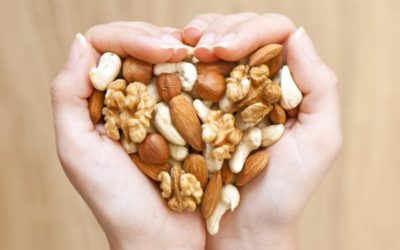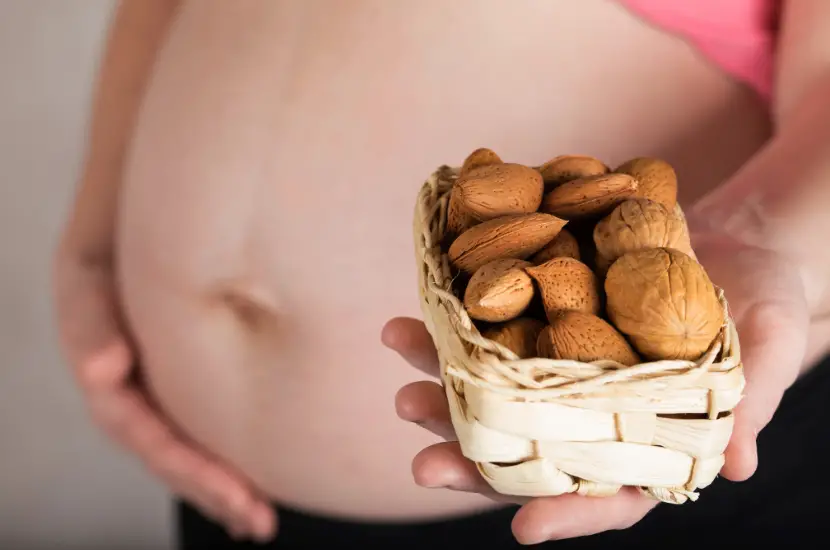
Should Pregnant Women Eat Nuts And What Are The Types?
Nuts are highly nutritious, containing a multitude of nutrients such as protein, omega-3 fatty acids, vitamin E, monosaturated fats that all have its various benefits. There have been concerns of whether pregnant women can eat nuts if they have a family history of allergy such as eczema, asthma, and food allergies. This article addresses that question and provides you with a list of nuts that you should eat during pregnancy.
Is it safe to eat nuts if you have a family history of allergy?
The short answer is yes. According to the UK’s Food Standards Agency, pregnant women or breastfeeding women need not avoid peanuts, even if they have a family history of allergy. Dr Emma Derbyshire from The Health and Food Supplements Information Service also supports this point, as she states that unless the women themselves have the nut allergy, there is no solid evidence that consuming nuts will affect the chances of the baby developing a nut allergy. Hence, you can be rest assured that eating nuts during your pregnancy will not sensitize the fetus into having a nut allergy. It is without a doubt, that if you are still hesitant about consuming nuts, you should consult your doctor.
Best nuts for pregnant women
Almonds
Almonds are nutrient dense, containing minerals such as manganese, phosphorus, and copper. Almonds also have high amounts of vitamin E, which is especially needed during pregnancy when immunity is low. Almonds also help to control blood sugar levels and blood pressure due to the flavonoids present, which is necessary to prevent the risk of developing preeclampsia. Preeclampsia occurs when the blood pressure is too high, and it may damage the kidneys and liver. Almonds are also a great way for fat intake for pregnant women, as they contain a good balance of polyunsaturated and monounsaturated fats. These are essential fatty acids that are needed for brain health and cell growth, and hence, are beneficial for the development of your baby.
Walnuts
Walnuts which are also dubbed as brain food, are undoubtedly an essential for pregnant mothers. Walnuts contain a significantly higher concentration of omega-3 fat than any other nuts, which is about 2.5 grams per 28 grams of walnuts. The type of omega-3 fat found in walnuts is alpha-linolenic acid, which helps to reduce inflammation and promote heart health. However, it can be converted into eicosatetraenoic acid (EPA) and docosahexaenoic acid (DHA), of which both are very important for the structural and functional development of the fetal retina, immune system and brain. These omega-3 fatty acids are required to improve the behaviour, concentration, attention, memory and learning pace of children. Conversely, low levels of omega-3 in the brain of the foetus could lead to a less optimal cognitive function and behavioural disorders such as depression, anxiety, and depression. Omega-3 fatty acid is also needed for the timing of the pregnancy period as well as for the baby to have a healthy weight. Hence, walnuts are very important for the cognitive and physical development of the baby.
Pistachio nuts
Pistachio nuts contain high amounts of folate (vitamin B6), which is necessary for pregnant women to prevent birth defects. A serving of pistachios provides about 37% of the daily required intake of 1.3 mg of vitamin B6. Folate is important for the development of the nervous system and the prevention of neural tube defects (NTDs) in babies. One of the most common birth defects is Spina bifida, which a defect of the spinal cord and the brain. Most of the NTDs can be prevented if you consume enough folate before and during early pregnancy.
Cashew nuts
Cashew nuts are also great to consume during pregnancy, as they are sources of iron. For every 28 grams, cashews contain 1.7mg of iron. Iron is one of the most important minerals needed during pregnancy, as they are needed to form red blood cells. Pregnant women are also at a higher risk of iron-deficiency anemia, and hence eating cashew nuts could counter that. The type of iron in cashew nuts is called non-heme iron, which is not as easily absorbed by the body than iron from sources such as meat. Hence, you should consume food rich in vitamin C as well, such as fruits and vegetables together with cashew nuts, so as to increase the absorption of iron.
Conclusion
All in all, eating nuts can help to increase your child’s neuropsychological functions. However, do consume these nuts in the early phases of your pregnancy, such as the first or second trimester, as the effects of these nutrition are more potent during early pregnancy.

